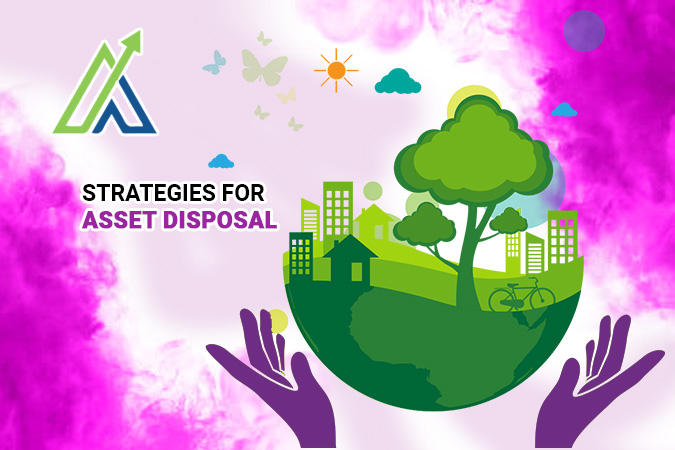One of the most important tips for staying financially alert is to dispose of items that have become obsolete. In balancing the equation to maximize profit, reduce expenses, and free up cash, your ability to offload outdated stocks is crucial. Among the most important factors are the time of disposal, the market conditions, and the specific methods by which the disposers rid themselves of certain assets. By mastering these factors, you can optimize each disposal action to an acceptable level.
Why Bother with Asset Disposal?
Getting rid of old assets isn’t just housecleaning. It’s a way to stay lean and mean, cutting costs and boosting the bottom line. Dumping the right stuff at the right time keeps operations smooth and pockets fuller. For instance, a factory ditches old machines for newer models, cutting down on repair costs and ramping up production.
Timing is Key
Nailing the right time to dump assets is crucial. Too soon or too late, and you’re losing money.
- Early Disposal Risks: If you dispose of an asset too soon, you may lose out on its remaining useful life. Imagine a business losing out on the residual value of a truck it was selling that still had a few excellent years left in it.
- Late Disposal Risks: Resell value drops and maintenance expenses rise if you hold onto a property for too long. Imagine a company missing out on possible resale revenue by holding onto old computers until they are completely useless.
Watch the Market
Market conditions can make or break your asset disposal strategy. Knowing when demand is high can lead to better returns.
- Good Market Conditions: If you sell goods when demand is high, the prices will go up. Imagine a construction company that gets better deals by selling extra tools during a building boom.
- Bad Market Conditions: Higher results are expected when you offload during a period of downtime. Imagine a tech company that is selling old computers for less money when the market is sluggish.
Maximize Returns
Getting the most from asset disposal isn’t just about timing. It’s also about how you do it.
- Sell to End-Users: Compared to middlemen, direct sales typically result in higher revenue. An office makes more money selling used chairs directly to startups than it does going via a dealer.
- Auction: Things can be sold quickly at auctions, especially if there is a buying war. When a company auctions off its fleet, it can get a lot of bids, which drives up the price.
- Trade-In: Trading in old assets for new ones can be a smart move, especially with good trade-in deals. A tech company trading in old PCs for discounts on new models saves on upgrade costs.
- Donate: Donating assets can provide tax breaks, balancing out the lack of sale profit. A hospital donating old equipment to a charity gains tax deductions and good PR.
- Scrap: If assets are worthless, scrapping them for parts can still recover some value. A factory scrapping old machines can sell the metal parts to recyclers.
Think Strategically
Strategic asset disposal is more than picking a method. It’s about fitting disposal into your broader business strategy.
- Operational Impact: Consider how dumping an asset will hit operations. Have replacements ready to avoid disruptions. A delivery firm waiting to dump old vans until new ones are on the road keeps services running.
- Regulatory Compliance: Make sure asset disposal follows all laws to avoid fines and legal trouble. An electronics firm following e-waste rules when offloading old computers avoids penalties.
- Environmental Impact: Think about the eco-impact and go for green disposal methods. A retailer recycling old shelves instead of dumping them in a landfill cuts down on environmental harm.
Questions to Understand your ability
Qus: Why dump old assets?
- Redecorate the office
- Cut costs and stay lean
- Hire more people
- Make the office look bigger
Qus: What’s the risk of dumping assets too early?
- More money
- Miss out on useful life
- Higher maintenance
- Better efficiency
Qus: Why watch market conditions when dumping assets?
- Cut marketing costs
- Find the cheapest way
- Get better returns
- Make employees happy
Qus: What’s the perk of selling directly to end-users?
- Fast transaction
- More cash than middlemen
- Better compliance
- Higher marketing costs
Qus: How does donating assets help?
- Raises maintenance costs
- Gives tax breaks and good Public relations
- Lowers efficiency
- Needs more storage space
Conclusion
Disposing of your assets is an important part of controlling your stuff. Choosing the best way, doing it at the right time, and keeping an eye on the market can make a big difference. Regular checks and knowledge of the market help make sure that assets are dumped in the best way to make the most money.
FAQ's
Ditching old stuff cuts costs, frees up cash, keeps finances tight.
You might lose out on useful life and value.
Maintenance costs soar, resale value tanks.
Market demand controls price. Dump during high demand, get more cash.
Sell to end-users, auction, trade-in, donate, scrap.
Consider operational impact. Have replacements ready.
Avoid fines and legal trouble, especially with electronics.
Go green. Recycle to cut down on environmental harm.

